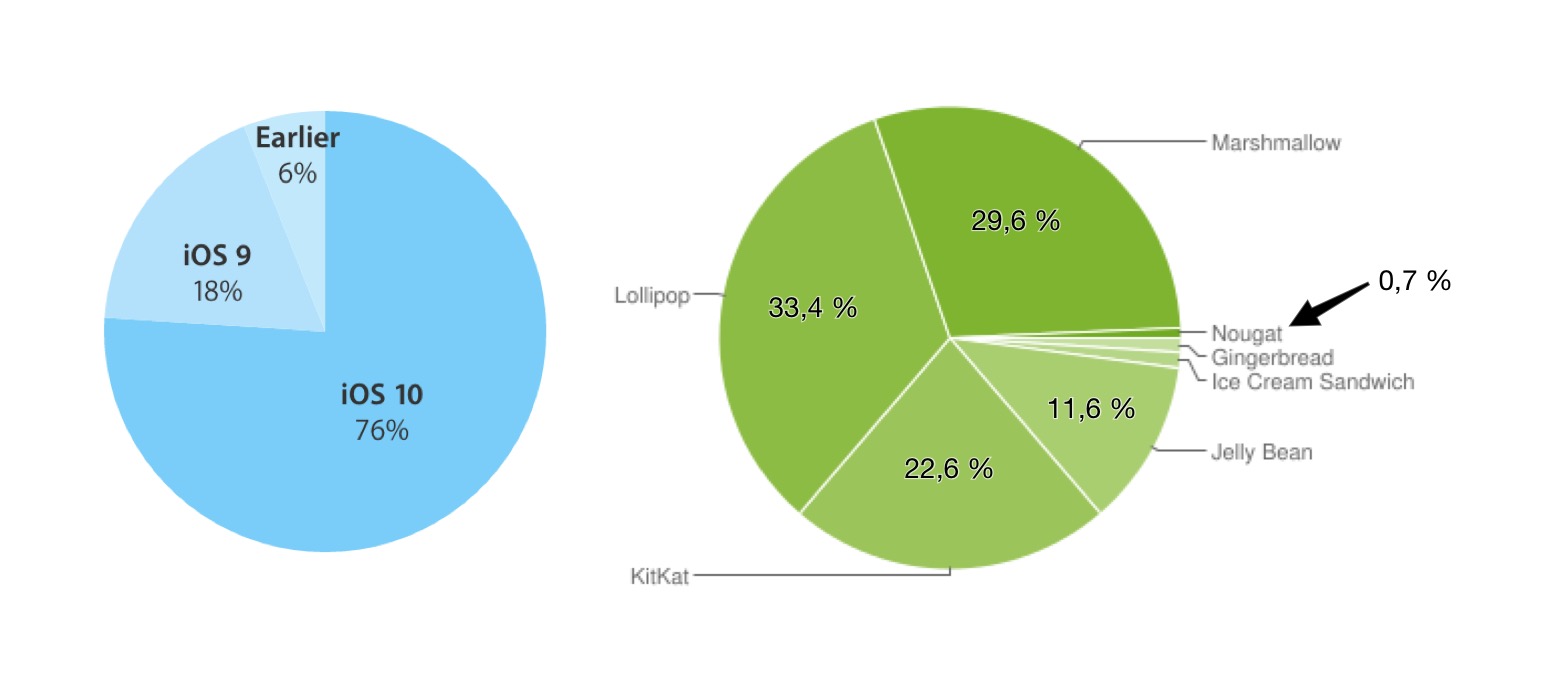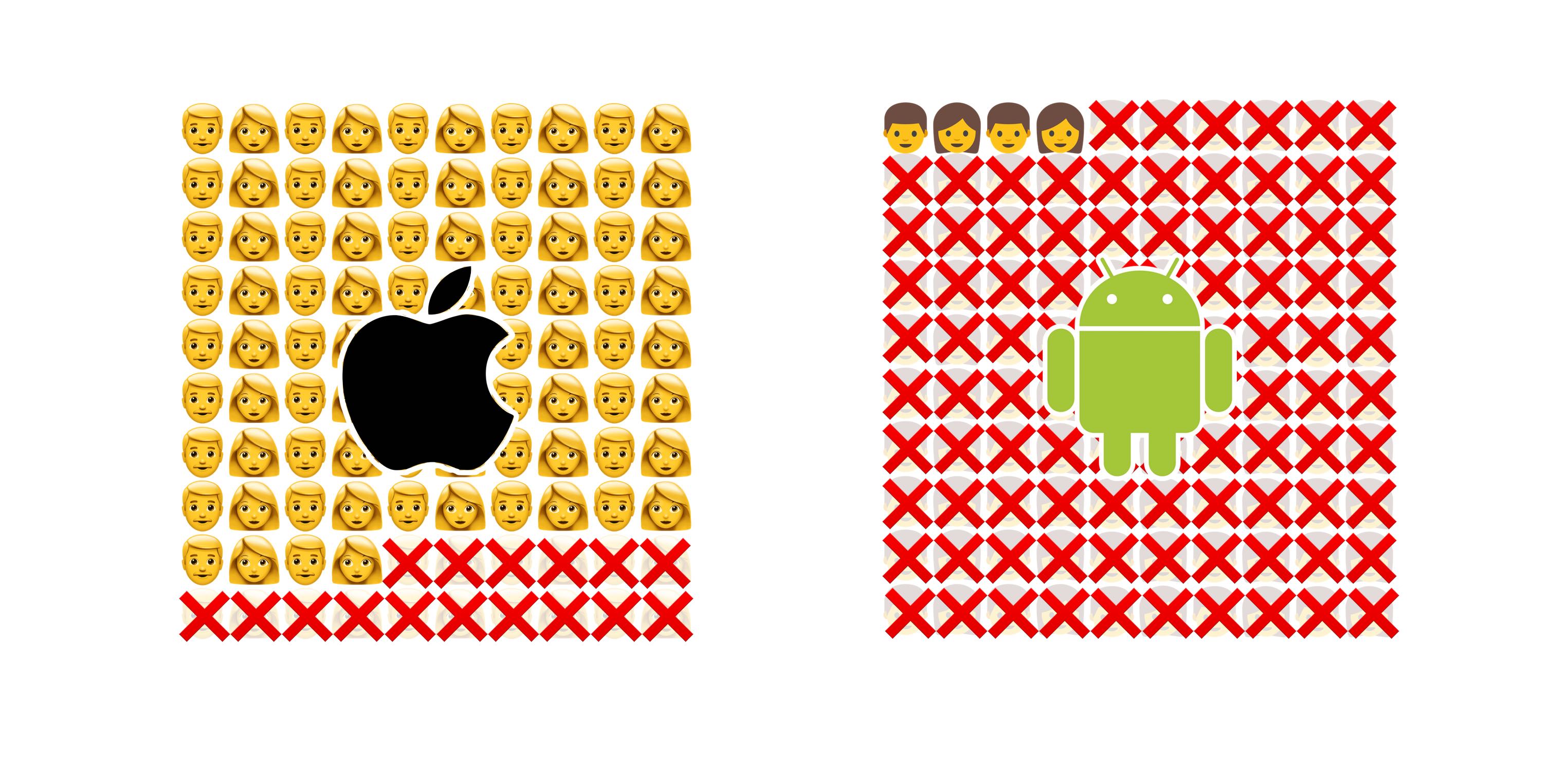In occasion iPhone's tenth birthday much has been said. Above all, how this apple phone changed not only the mobile phone market, but also significantly influenced the whole world, and how it is one of the most successful products in history. However, Steve Jobs did one more thing with the first iPhone, which is very important for the future.
Former Apple executive Jean-Louis Gassée on his blog Monday Notes writes about the so-called Sine Qua Non, which is a Latin expression expressing "(condition) without which it is not possible", or "necessary condition". And just one such condition, which came with the first iPhone, is recalled on the tenth anniversary as also extremely important.
We are talking about the influence of mobile operators, who until 2007 completely controlled the mobile phone market - dictating to manufacturers what phones to make, handling marketing and distributing their own content to the phones. In short, they had more or less total control over the entire business. However, Steve Jobs managed to break it.
Gassée writes:
We can be immensely grateful to Steve Jobs for breaking the backs of operators (to avoid more colorful expressions).
Before the iPhone came along, phones were treated like yogurt cups in the supermarket. The buying centers told the yogurt makers what flavors to make, when, where and at what price… (…) And they didn't forget to send people to make sure the labels on the shelves lined up correctly.
Operators did not treat phone manufacturers differently back then. They controlled the whole business and did not let us forget the Hollywood saying "content is King, but distribution is King Kong". Life had a clear order, everyone in the telephone business knew their place.
Something similar, however, was something unimaginable for Steve Jobs, who was about to unveil his big product, whose future success and its size, neither he nor any of his colleagues could have imagined. Jobs certainly did not intend to proceed with the option that the operator could, for example, dictate which applications will be on his phone.
How did Jobs and his team manage to hypnotize AT&T executives into giving up their inherent right, their control, in exchange for a five-year exclusivity on an unproven device they couldn't even see? But in the end, why should we be surprised? An Apple executive did something similar with iTunes back in the days of the iPod. He convinced publishers to sell music piecemeal, one song at a time, as opposed to the established sale of entire albums, and convinced payment card companies to accept dollar microtransactions.
It is the case of the iPod that Gassée mentions as such training on a large scale, where Apple verified a number of procedures, which were then used in the iPhone as well. Because Jobs managed to break AT&T, he secured complete control over the iPhone. The kind that the operators had until then. The result, among other things, was that no unnecessary carrier apps got into the system, iOS updates got to customers quickly, and security issues could be taken care of much faster.
Google took the opposite route with its Android operating system. The fact that carriers have retained some control over it, unlike iOS, certainly hasn't stopped it from growing rapidly and now dominating the smartphone market, but there is one huge downside to this route.

Jobs' users are mainly indebted to the fact that, no matter what iPhone they have from recent years, they can be sure that on the first day when a new version of the operating system is released, they will install the latest iOS without any problems. And with that, they get both new features and important security patches.
Android, on the other hand, has a big problem with adopting the latest versions. Although the system as such is developing as quickly as iOS, the latest Android 7.0 with the label Nougat, released last year, can only be found on a fraction of phones. Precisely because manufacturers and operators add their own software to it and handle distribution in their own way. The end user, for example, would very much like to use the latest functions on his new phone, but he has to wait until the operator allows him to do so.
According to Google's January data, less than one percent of devices are running the latest Android 7 Nougat. In January, the latest mobile operating system from Apple, iOS 10, was already reported to be used on more than three quarters of all compatible iPhones. Although even the "carrier route" can be successful, as demonstrated by the extension of Android, iPhone users can only thank Steve Jobs for bypassing the carriers.

In addition to the benefits mentioned above, they also do not have to worry that when they send each other the latest emoji, the other party will not see a sad square, as can often happen on Android. More details on this topic writes ... Emojipedia Jeremy Burge. Older versions of Android, on which many users still operate, are to blame.
Well, I don't really care about emoji :). But otherwise, of course, the updates are fine. Although I prefer not to put anything newer than iOS 4 on the iPhone 7S, which is lying around at home.
Let's not try to make him a greater god than he was at any cost. In the old Nokia, there was no software from the operator, and neither was Windows CE at the time. I didn't have Android at the time, so I can't judge. The operator dictated a maximum price policy.
WHAT JOBS DID, THAT HE STOPPED OPERATORS TO INTERFERE WITH THE SOFTWARE AND FIRMWARE, IS THE SAME ATTITUDE AS THE CAPACITIVE TOUCH SCREEN IS CONTROLLED WITH FINGERS....THE SOFTWARE OR FIRMWARE HAS BEEN CHANGED / ALMOST/ IN EVERY PHONE AND TO CLAIM THE OTHERWISE IS IGNORANCE OF THE PROBLEM....WHO BUT YOU BOUGHT THE PHONE WITH NO SUBSIDIES, IT HAD ORIGINAL SOFTWARE AND FIRMWARE DIRECTLY FROM THE MANUFACTURER...AND TO BE SPECIFIC, THE OPERATOR ALSO CHANGED THE PACKAGING WHERE HE GAVE A SMALL BATTERY, HE DID NOT GIVE HEADPHONES, CABLES, PACKAGING...AND HAD HIS LOGO PAINTED ON THE BOX AND THE PHONE... HE EVEN CHANGED THE FUNCTION OF THE PROGRAMMABLE BUTTONS WHERE HE ADDED A SELECTED FUNCTION IN FRONT OF THEM WHICH OFTEN ANNOYED AND TAKES MORE MONEY FROM THE CUSTOMERS…